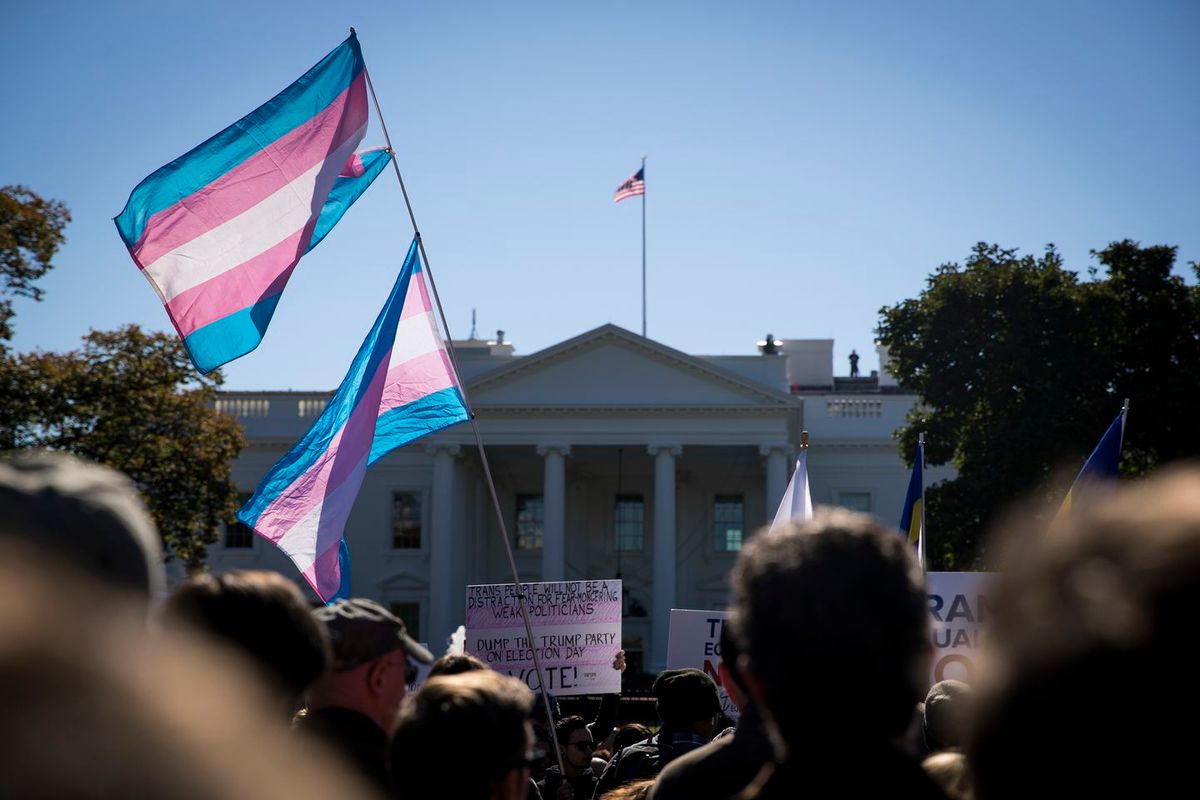Trump administration proposes new rule ending protections for homeless transgender individuals

A few minutes every morning is all you need.
Stay up to date on the world's Headlines and Human Stories. It's fun, it's factual, it's fluff-free.
On Wednesday, the United States Department of Housing and Urban Development (HUD) proposed a new rule that would allow federally funded homeless shelters to deny housing to transgender individuals in single-sex shelters that correspond to their gender identity, rolling back Obama-era protections.
HUD secretary Ben Carson said in a statement that the new rule would “better accommodate [the] religious beliefs of shelter providers.”
The rule also comes after an earlier decision by the Trump administration to reverse transgender health care protections, a rule that has been met with a lawsuit by a coalition of LGBTQ groups.
The Obama administration’s 2012 Equal Access Rule prohibits discrimination based on sexual orientation, gender identity, or marital status in HUD’s housing program. A 2016 expansion to the rule clarified the term “gender identity” to mean a transgender individual’s real gender identity instead of one that can be perceived by others based on the individual’s assigned sex at birth.
The modification provided the transgender community with legal protection against discrimination in same-sex shelters funded by HUD’s Office of Community planning and development.
HUD said in the statement that shelters would be required to comply with the 2012 portion of the Equal Access Rule, but not the 2016 modification.
“Each shelter’s policy is required to be consistent with state and local law, must not discriminate based on sexual orientation or transgender status, and may incorporate practical considerations of shelter providers that often operate in difficult conditions.”
HUD added that the new rule will allow same-sex shelters to establish their own “admission determinations” for individuals whose gender identity does not conform to the sex they were assigned at birth. These could be based on a transgender individual’s real gender identity or the one perceived by shelter providers on the basis of biological sex.
“The new rule allows shelter providers that lawfully operate as single-sex or sex-segregated facilities to voluntarily establish a policy that will govern admissions determinations for situations when an individual’s gender identity does not match their biological sex," the statement read.
“For example,” it added, “such policies could be based on biological sex, sex as identified on official government identification, or the current rule’s mandate of self-identified gender identity."
Several civil rights groups have come out to condemn the proposed rule.
LaLa Zannell, the Trans Justice campaign manager for the American Civil Liberties Union (ACLU) said in a statement that “This new rule would be particularly dangerous for the Black and Brown transgender women who face extraordinarily high rates of unemployment and homelessness at any time, and particularly in this economic crisis.”
Robin Maril, the Associate Legal Director at prominent LGBTQ advocacy group Human Rights Campaign, told The New York Times that the Trump administration is trying to redefine what discrimination means, especially after the Supreme Court recently prohibited workplace discrimination against LGBTQ employees.
“We’ve seen this time and time again by this administration,” Maril said. “Of mincing words, and going out of their way to discriminate while saying they’re not. It’s reclassifying what discrimination is. It’s trying to make turning someone away not discrimination.”
The rule specifies that shelters that turn away transgender individuals must provide them with a referral to other shelters “that can meet their needs.”
Maril said that this can be dangerous for transgender women.
“There are going to be a lot of places where shelters are primarily religious and are primarily run by folks who don’t want to serve transgender women in women shelters. It sounds great to say ‘Well, you can get a referral,’ but if that referral is to a men’s-only shelter, that is not an option. That is not a safe option.”
Trump administration officials have often stated that such rules will ensure that men cannot disguise themselves to slip into women’s shelters to perpetrate abuse.
In the statement Carson noted that this “important update will empower shelter providers to set policies that align with their missions, like safeguarding victims of domestic violence or human trafficking."
However, an April report by the Williams Institute at the University of California, Los Angeles, School of Law said that such policies can cause “many transgender people to go unsheltered instead.” It added that even if provided with shelter, the transgender individuals face “an increased risk of harassment and victimization” which is “often met by inaction by shelter staff.”
Another report by the National Center for Transgender Equality and the National Gay and Lesbian Task Force found that 55% of the respondents it had surveyed reported being harassed in the shelters. 63% of them were Latino and 61% were Black transgender people. 25% of the respondents reported being physically assaulted, with 31% of them being Black. 22% surveyed were sexually assaulted, with Black respondents again reporting the highest rate of sexual assault at 33%.
Some civil rights groups also expressed concern that the broadly written rule could also affect cisgender individuals.
Dylan Waguespack, Public Policy Director at True Colors United, which works to prevent homelessness among LGBTQ youth, said, “There’s some risk of not only transgender people being swept up by this, but also cisgender individuals who may not conform to whatever social norms are set by a particular shelter. It’s a completely bad-faith argument to say that gender identity protections remain.”
The report by Williams Institute noted that homelessness remains one of the biggest problems faced by the LGBTQ community.
It found that LGBTQ individuals make up one-fifth of the homeless population, a ratio larger than that of any other segment of the general population, and that one-third of transgender individuals had experienced homelessness in their lifetime.
Have a tip or story? Get in touch with our reporters at tips@themilsource.com




Comments ()